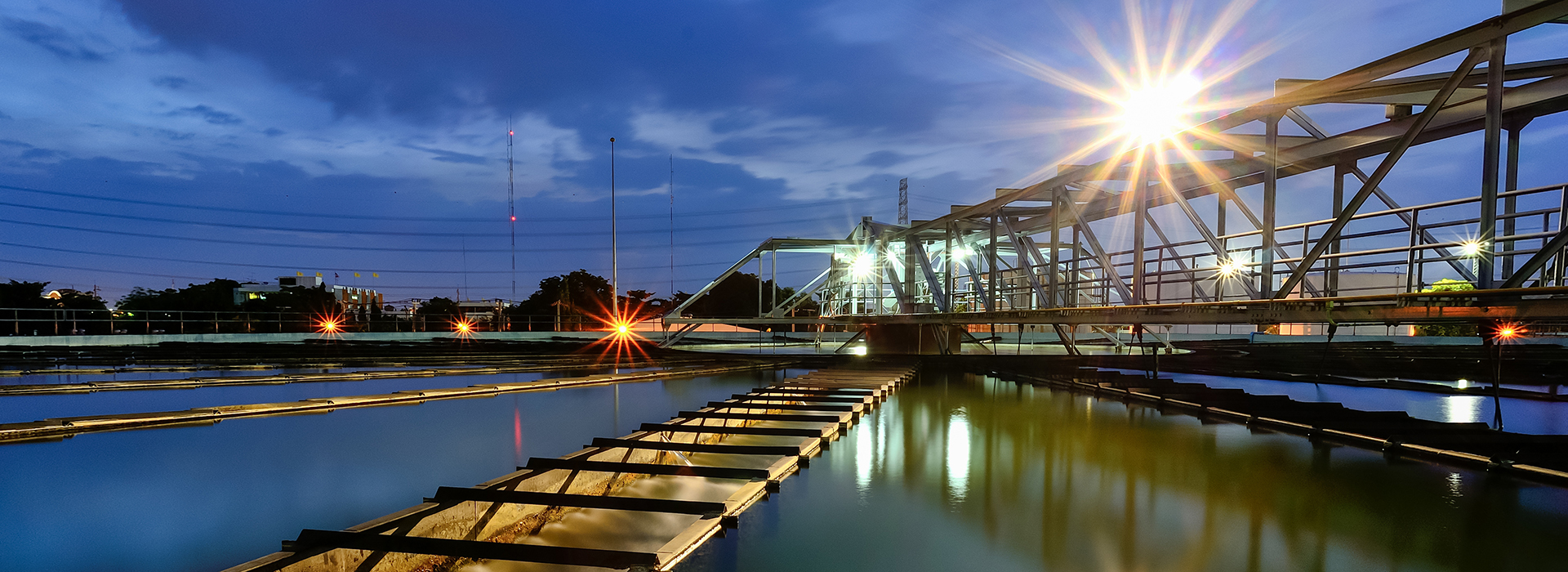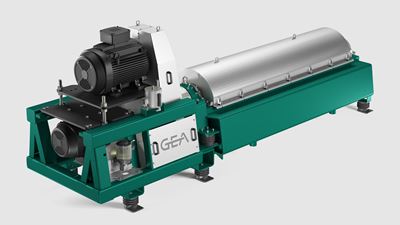Municipal effluents
Effluent treatment with GEA decanters for dewatering and thickening

The environmentally friendly and cost-effective disposal of waste products generated through effluent treatment is a major challenge for relevant industries around the world. It is generally true, however, that the greater the proportion of dry substance for disposal, the lower the transport, incineration and landfill costs. GEA’s reliable, high-performance decanters effectively and efficiently thicken and dewater effluent, making it possible for municipal sewage treatment plants to achieve a considerably reduced sludge volume.
Optimal dewatering reduces costs of effluent disposal
Designed for high clarification performance and maximum solid thickening, GEA decanters provide reliable dewatering of effluent in municipal sewage treatment plants. The high level of dewatering achieved means that our decanters enable substantially reduced transport and disposal costs. They set standards in terms of dry substance and separation performance, and also require minimal space. Our decanters demonstrate the most efficient use of energy and can enable up to a 50% saving on flocculants compared with other sludge treatment technologies.
Fully automated feed control for maximum volume reduction
GEA decanters effectively demonstrate consistent thickening of effluent. The patented GEA varipond system means that our centrifuges adapt fully automatically to changing feed conditions, to enable consistent dry substance output, even when the solid concentration in the feed varies considerably. Customers benefit from maximum process reliability and unmanned, 24-hour operation, and because of the constant concentration, the digestion tank can be operated more economically: the sludge ferments better and a greater gas yield can be achieved due to the improved quality.

Designed for use in the thermal hydrolysis process
The process of Cambi thermal hydrolysis can also be integrated into municipal sewage treatment plants to allow a significant improvement in anaerobic digestion and thus substantially more efficient dewatering of effluent. Whether for stable pre-dewatering of exactly 16% before hydrolysis, or for dewatering after the digestion process, GEA decanters are the result of decades of experience and comprehensive process technology know-how.
Mobile plants for flexible use
To handle peak loads, our high-performance systems are also available as mobile units. All our plant systems, including all the necessary units, can be installed on containers and thus offer users maximum flexibility.
GEA in addition offers a range of jet and vacuum pumps for conveying liquids such as water, sludge or lyes, solids such as sand, gravel, salt, activated carbon, or ion exchange resin in municipal effluent plants.
Products & Technologies
Showing 4 of 5

Decanter Centrifuge
The decanter’s hour has come as soon as the solids content in the suspension to be processed is particularly high. These machines provide the benefits of high clarifying efficiency and maximum dewatering as well as the separation of liquids with the simultaneous removal of solids. The main requirements in this respect include a high bowl speed, a...

Ejector Systems
Ejectors, are devices for the conveyance, compression or mixing of gases, vapors, liquids or solids in which a gaseous or liquid medium serves as the motive force. They are "pumps without moving parts".

Hygienic valves & components
Hygienic valves from GEA form the core component of matrix-piped process plants. Thanks to a pioneering valve concept that sets standards for its flexibility, as well as the latest control and automation functions, our valves offer manufacturers maximum product safety and process reliability. All GEA hygienic valves are designed to be efficient a...

Jet pumps
Jet pumps, also referred to as ejectors, are devices for the conveyance, compression or mixing of gases, vapors, liquids or solids and for the production of vacuum in which a gaseous or liquid medium serves as the motive force.
Downloads
GEA Insights India
All pharmaceutical freeze-drying vials are the same! Aren't they?
Whether it’s a fad or the future, 100% vial traceability is becoming an increasingly important consideration in the pharmaceutical freeze drying industry. Keeping a close eye on developments is GEA. We’re investigating possible solutions and, what’s more, we have the experience, expertise and know-how to implement them.
Alcohol-free beer: They want it all – they want less
There was a time when the phrases ‘non-alcoholic beer’ and ‘tastes good’ were seldom used together in the same sentence, particularly by consumers. But low-proof and alcohol-free beers have come a long way – many of them now refreshing drinks in their own right – thanks in no small part to technology from GEA.
Innovating patient care with aseptic spray drying
At GEA, our commitment to engineering for a better world fuels our pursuit of innovative solutions that enhance patient care and safety. One of our most promising ventures in recent years is aseptic spray drying – a technology that promises to revolutionize pharmaceutical manufacturing.

